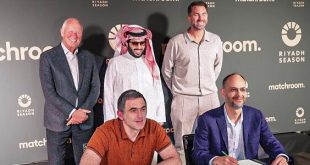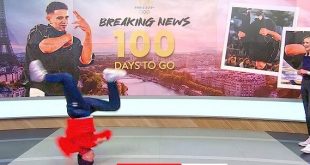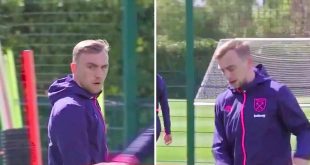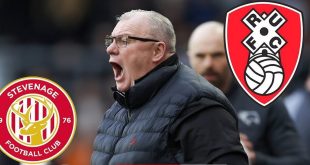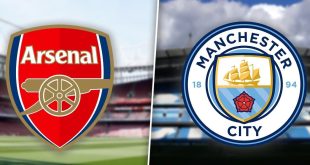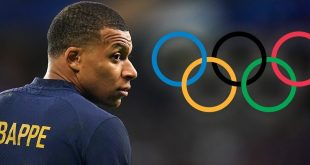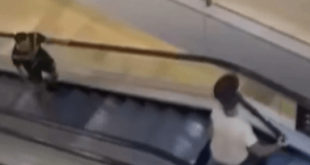The upcoming World Snooker Championship, starting this weekend, is shrouded in a cloud of uncertainty regarding its future venue [1]. While Sheffield’s iconic Crucible Theatre has hosted the prestigious event since 1977, its current contract expires in 2027 [1]. Saudi Arabia’s growing involvement in sports has thrown a wrench into the mix. The Riyadh season has partnered with the World …
Read More »World Snooker Championship to move from the Crucible to Saudi Arabia?
The upcoming World Snooker Championship, starting this weekend, is shrouded in a cloud of uncertaint…
Olympic Breaking explained: The new event at Paris 2024 Olympics
Breakdancing, also known as breaking, is set to make its much-anticipated debut at the Paris Olympic…
West Ham’s Jarrod Bowen trains ahead of Europa League clash with Bayer Leverkusen
West Ham United are in a precarious position as they head into the second leg of their Europa League…
Steve Evans leaves Stevenage to return to Rotherham United
In a surprising turn of events, Stevenage Football Club has confirmed the departure of their first-t…
Will Manchester City and Arsenal set up an all-English semi-final?
The Champions League quarterfinals kick off tonight with both Manchester City and Arsenal facing tou…
Breaking News
Olympic Breaking explained: The new event at Paris 2024 Olympics
Breakdancing, also known as breaking, is set to make its much-anticipated debut at the Paris Olympics 2024, just 100 days away [1]. Joining us today to discuss this exciting development is Karam Singh, also known as K-Kid, a hopeful for Team GB’s breaking team [1]. Breaking Takes Center Stage Singh expresses his enthusiasm about breaking’s inclusion in the Olympics. “It …
Read More »West Ham’s Jarrod Bowen trains ahead of Europa League clash with Bayer Leverkusen
West Ham United are in a precarious position as they head into the second leg of their Europa League quarter-final tie against newly crowned German champions Bayer Leverkusen [1]. The Hammers trail 2-0 on aggregate after a disappointing first leg defeat in Germany [1]. The challenge for West Ham is significant. No team has managed to beat Leverkusen this season …
Read More »Steve Evans leaves Stevenage to return to Rotherham United
In a surprising turn of events, Stevenage Football Club has confirmed the departure of their first-team manager, Steve Evans, who will be joining Rotherham United [1]. Evans’ exit comes just two days before Stevenage’s crucial League One fixture against Oxford United [1]. The news follows the recent dismissal of Rotherham’s manager, Leam Richardson [1]. During his two-year tenure at Stevenage, …
Read More »Will Manchester City and Arsenal set up an all-English semi-final?
The Champions League quarterfinals kick off tonight with both Manchester City and Arsenal facing tough challenges in their respective ties. Arsenal in Munich Against Bayern Munich Arsenal travel to Germany needing a win or a draw with more than one away goal to progress after a 2-1 draw in the first leg. Manager Mikel Arteta is urging his team to …
Read More »Could the World Snooker Championship really leave the Crucible?
The upcoming Snooker World Championship, kicking off this weekend at the historic Crucible Theatre in Sheffield, casts a long shadow of uncertainty over the venue’s future as host. The Crucible has held the prestigious tournament since 1977, but its contract expires in 2027. This has opened the door for potential relocation, with Saudi Arabia emerging as a strong contender. World …
Read More »Paris 2024: Will Kylian Mbappe represent France at the Olympic Games?
With only 100 days left until the Paris Olympics, a major question hangs over the French sporting scene: will Kylian Mbappé, arguably the nation’s most celebrated athlete, represent his home country? According to reporter Miriam Walker, Mbappé is highly enthusiastic about competing in the Games. He recently described it as a “dream” and the “holy grail” for athletes [1]. This …
Read More »From Prison to House Arrest: Aung San Suu Kyi’s Ongoing Struggle
Myanmar former leader, Aung San Suu Kyi, has been relocated from prison to house arrest, as confirmed by the country’s military government. Ms Suu Kyi’s administration was ousted by a military coup in 2021, and she has been held in detention since then, facing a 27-year sentence for various charges including treason, bribery, and breaching telecommunications laws. Junta spokesperson Major …
Read More »-
‘Hypocrisy’ of a London school Muslim prayer ban
A British secular school has ignited controversy over its policy on religious expression. The …
Read More » -
Security Incident Halts Flights at Birmingham Airport
-
‘International Community Pleading With Netanyahu Not To Escalate’ | Iran vs Israel
-
Iran attack: Israeli military display downed Iranian ballistic missile
-
Dubai airport flooded as UAE and Oman reel from deadly storms
-
“Slippery Slope!” Julia Hartley-Brewer HITS OUT At Rishi Sunak Smoking Ban
-
Ex-asylum seeker who set two elderly worshippers alight given indefinite hospital sentence
-
Devastating House Fire in Wigan Claims Life of Young Boy
-
Aussie Citizenship Offered to French Hero Who Stopped Sydney Mall Attack
A Frenchman visiting Sydney, Damien Guerot, has been hailed a hero after bravely intervening …
Read More » -
Humanitarian Crisis in Sudan: International Community Pledges Aid
-
Iran attack: Israeli military display downed Iranian ballistic missile
-
Dubai airport flooded as UAE and Oman reel from deadly storms
-
‘Hypocrisy’ of a London school Muslim prayer ban
 Wortley Today The latest headlines from the UK
Wortley Today The latest headlines from the UK
